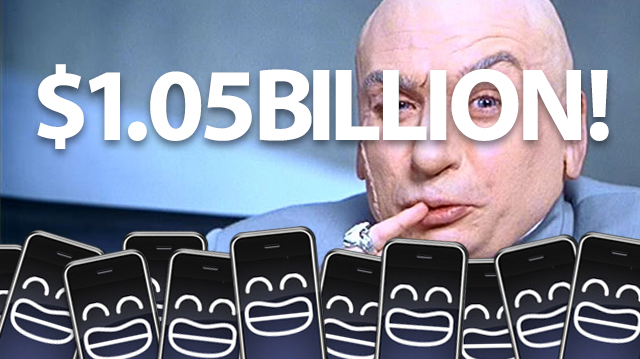In a report released by the Online Publishing Association on Monday, the standout statistic was that 68 per cent of smartphone owners now say they “can’t live without their smartphones”. What a bunch of babies. I don’t care who you are or what you do: You can live without a goddamn smartphone.
Unless I’m really in the dark about recent technological advancements, smartphones don’t feed you, give you water, or provide you clothing. They don’t make fire, yield medicine, or birth children. Smartphones, with their pages of apps and barely functioning “intelligent personal assistants” can’t pitch you a tent in the rain or help you fend off a pack of angry hyenas.
If you say you like your smartphone because it is a useful tool to help make life simpler, that makes a lot of sense. More power to you. But hammers are useful tools that make life simpler, too, and yet I can’t imagine a world in which nearly 70 per cent of hammer owners say they couldn’t live without their nail-bangers.
Proclaiming that you can’t live without your iPhone isn’t just measurably wrong, it’s also kind of offensive. It’s like saying you couldn’t live without air conditioning or Breaking Bad or Christmas presents. The majority of the people in the world live without all that stuff, and most of them, I’d guess, do so reasonably happily. Yet 68 per cent of smartphone users are willing to tacitly suggest that those people’s lives aren’t worth leading, because they don’t have some phone in their pocket that tells them the weather or lets them play Plants vs Zombies. Try telling a kid in Bosnia whose house is still speckled with bullet holes that you can’t live without your smartphone. See how much sympathy you get from him.
To be sure, I’m willing to bet that a healthy number of respondents to the OPA’s poll were being tongue-in-cheek when they said they couldn’t live without their devices. It’s a flippant response to a leading question, and I doubt you could find even a handful of people who literally equate smarthpones with food and water. But language is important, and if there are millions of smartphone users out there willing to nod their heads in agreement when someone asks them if they need their iPhone or Android to live, something’s gone badly wrong.
To me, this problem is a symptom of a larger problem that’s corroded the world for at least as long as I’ve been alive. Namely, it seems to be increasingly difficult for many people to understand the difference between “need” and “want”. Alive in a wealthy nation and during the most technologically advanced era of human history, the lines between what makes life possible and what makes life comfortable have been erased. Food, clean water, and shelter are now within reach for most living in this country and for a lot that stability has existed for decades.
With the building blocks of existence now taken for granted, we’ve reached a time in which food isn’t seen as a necessity the same way, say, our blood isn’t seen as a necessity. The average person rarely considers that they need to pump blood through their veins and heart in order to live — our bodies just do that, and we don’t think about it. If you’re reading Gizmodo, it’s likely you think about food in the same way: You don’t stress where it’s coming from, it’s just there. And because our food is just there, it allows us to begin creating new requisites for life. We need air conditioning. We need television sets. We need $US300 headphones. We can’t live without our smartphones. It’s like we’ve become a nation of teenagers, the kind who scream melodramatically, “You’re ruining my life!” if our parents take away our phone or car privileges.
I really like that I’m able to check my email from my phone. It’s saved me a lot of time, stress, and work headaches. I love texting and using my laptop and Google Hangouts, which is probably the only good thing to come from Google+. But I also think it’s important to constantly remind myself that if all that stuff went away, my life would be different, not worthless. For the first few weeks it would probably be a huge hassle, but after a while I would get over it; perhaps I’d flourish.
In fact, some studies show that people tend to be less happy today than we were 30 years ago, before widespread computer ownership, before smartphones were in every pocket, before we obsessively checked our emails. Other studies show an inverse correlation between the amount of media kids consume and their happiness. We want — nay, need — all this stuff, and when we get it, it still doesn’t make us necessarily enjoy life more, despite the fact that we now can’t imagine life without it.
One of NBC’s most anticipated new fall shows is Revolution, a drama about what happens when, for some reason, every piece of technology in the world simply ceases to work. Millions are devastated for a while, of course. But the story at the heart of the program is about family and their close friends picking up and moving on. Because there is life beyond technology, even if it won’t feel that way when you wait in line for the next iPhone.
[Editor’s note: I don’t agree with this guy at all.]
